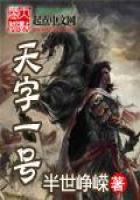They had ceased to be journeymen controlling in some measure their activities; they were now merely wage-earners.As the realization of this adverse change came over them, they began to resent the unsanitary and burdensome conditions under which they were compelled to live and to work.So actual grievances were added to fear of what might happen, and in their common cause experience soon taught them unity of action.Parliament was petitioned, agitations were organized, sick-benefits were inaugurated, and when these methods failed, machinery was destroyed, factories were burned, and the strike became a common weapon of self-defense.
Though a few labor organizations can be traced as far back as 1700, their growth during the eighteenth century was slow and irregular.There was no unity in their methods, and they were known by many names, such as associations, unions, union societies, trade clubs, and trade societies.These societies had no legal status and their meetings were usually held in secret.
And the Webbs in their "History of Trade Unionism" allude to the traditions of "the midnight meeting of patriots in the corner of the field, the buried box of records, the secret oath, the long terms of imprisonment of the leading officials." Some of these tales were unquestionably apocryphal, others were exaggerated by feverish repetition.But they indicate the aversion with which the authorities looked upon these combinations.
There were two legal doctrines long invoked by the English courts against combined action--doctrines that became a heritage of the United States and have had a profound effect upon the labor movements in America.The first of these was the doctrine of conspiracy, a doctrine so ancient that its sources are obscure.
It was the natural product of a government and of a time that looked askance at all combined action, fearing sedition, intrigue, and revolution.As far back as 1305 there was enacted a statute defining conspiracy and outlining the offense.It did not aim at any definite social class but embraced all persons who combined for a "malicious enterprise." Such an enterprise was the breaking of a law.So when Parliament passed acts regulating wages, conditions of employment, or prices of commodities, those who combined secretly or openly to circumvent the act, to raise wages or lower them, or to raise prices and curtail markets, at once fell under the ban of conspiracy.The law operated alike on conspiring employers and conniving employees.
The new class of employers during the early years of the machine age eagerly embraced the doctrine of conspiracy.They readily brought under the legal definition the secret connivings of the wage-earners.Political conditions now also worked against the laboring class.The unrest in the colonies that culminated in the independence of America and the fury of the French Revolution combined to make kings and aristocracies wary of all organizations and associations of plain folk.And when we add to this the favor which the new employing class, the industrial masters, were able to extort from the governing class, because of their power over foreign trade and domestic finance, we can understand the compulsory laws at length declaring against all combinations of working men.
The second legal doctrine which Americans have inherited from England and which has played a leading role in labor controversies is the doctrine that declares unlawful all combinations in restraint of trade.Like its twin doctrine of conspiracy, it is of remote historical origin.One of the earliest uses, perhaps the first use, of the term by Parliament was in the statute of 1436 forbidding guilds and trading companies from adopting by-laws "in restraint of trade," and forbidding practices in price manipulations "for their own profit and to the common hurt of the people." This doctrine thus early invoked, and repeatedly reasserted against combinations of traders and masters, was incorporated in the general statute of 1800 which declared all combinations of journeymen illegal.But in spite of legal doctrines, of innumerable laws and court decisions, strikes and combinations multiplied, and devices were found for evading statutory wages.
In 1824 an act of Parliament removed the general prohibition of combinations and accorded to workingmen the right to bargain collectively.Three men were responsible for this noteworthy reform, each one a new type in British politics.The first was Francis Place, a tailor who had taken active part in various strikes.He was secretary of the London Corresponding Society, a powerful labor union, which in 1795 had twenty branches in London.Most of the officers of this organization were at one time or another arrested, and some were kept in prison three years without a trial.Place, schooled in such experience, became a radical politician of great influence, a friend of Bentham, Owen, and the elder Mill.The second type of new reformer was represented by Joseph Hume, a physician who had accumulated wealth in the India Service, who had returned home to enter public life, and who was converted from Toryism to Radicalism by a careful study of financial, political, and industrial problems.
A great number of reform laws can be traced directly to his incredible activity during his thirty years in Parliament.The third leader was John R.McCulloch, an orthodox economist, a disciple of Adam Smith, for some years editor of The Scotsman, which was then a violently radical journal cooperating with the newly established Edinburgh Review in advocating sociological and political reforms.
Thus Great Britain, the mother country from which Americans have inherited so many institutions, laws, and traditions, passed in turn through the periods of extreme paternalism, glorified competition, and governmental antagonism to labor combinations, into what may be called the age of conciliation.And today the Labour Party in the House of Commons has shown itself strong enough to impose its programme upon the Liberals and, through this radical coalition, has achieved a power for the working man greater than even Francis Place or Thomas Carlyle ever hoped for.















